United States Confronted About State-Sanctioned Ethnocide Against Balanta People at the United Nations
October 16, 2023 Geneva Switzerland - The State Department of the United States of America was confronted with questions about U.S.-sanctioned ethnocide against Balanta people in the United States by Balanta Society in America President Siphiwe Baleka during the Civil Society Consultation held at the Permanent Mission of the United States of America to the United Nations at Route de Pregny 11, 1292 Pregny-Chambesy. The consultation with senior level officials of the United States Government was led by the Honorable Ambassador Michele Taylor, Representative to the United Nations Human Rights Council ahead of its scheduled fifth periodic review under the Internationa Covenant on Civil and Political Rights (ICCPR) which takes place on the 17th and 18th of October.
From left to right: Ms. Heidi Todacheene, Senior Advisor Office of the Assistant Secretary for Indian Affairs, U.S. Department of Interior; Mr. Robert Gilchrist, Principal Deputy Assistant Secretary Bureau of Democracy, Human Rights and Labor; Mr. Justin Vail, Special Assistant to the President for Democracy and Civic Participation, Domestic Policy Council of the Executive Office of the President; The Honorable Ambassador Michele Taylor, Representative to the United Nations Human Rights Council; and Mr. Steven Reed, Mayor of Montgomery, Alabama.
Mr Baleka was the seventh speaker during the session and, after first speaking in his native Balanta language and presenting himself as a living example of an Afro Descendant recovering from ethnocide committed by the Unites States, asked the following questions which had been previously submitted to the July 12 Civil Society Consultation but were not answered then:
Q1. What remedies are available to the Balanta people in America for redress for ethnocide?
Q2. Will the government of the United States of America engage in negotiations with the Balanta people, the government of the Republic of Guinea Bissau, the Vatican, and the Government of Portugal, under the Geneva Convention, for the final “release and repatriation” of the descendants of the Balanta, Fulani, Mandinga, Papel, Manjaco, Beafada, Brame (Mancanha), Bijago, Djola (Felupe), Mansoaca prisoners of war who were trafficked to and enslaved in America?
Q3. How can the Balanta B’urassa History and Genealogy Society in America engage in the process of receiving reparations for the crimes of slavery and ethnocide?
Mr. Jonathan Smith responded with the Department of Justice’s standard position against “trafficking” which, in this context, would either be a reference to the experience of being captured as a prsioner of war, put in chains, imprisoned and then “shipped” accross the Atlantic to be dehumanized and subjugated to chattel enslavemenr, or else a complete misunderstanding of the issues being raised. Mr. Justin Vail then acknowledged the issue of America’s slavery heritage and the current reparations movement, and Mr. Aaron Ford added that Mr. Baleka’s demonstration of ethnocide repair was impressive and then apologized for having to give the admittedly unsatisfactory answer that reparations would best be handled by the municipal and state level. Noting that none of the US Delegation responded directly to the first question, Mr. Baleka seized the moment to ask, “Can anyone respond to the issue of ethnocide that I raised?” The room fell awkwardly silent after which Mr. Baleka took his seat.
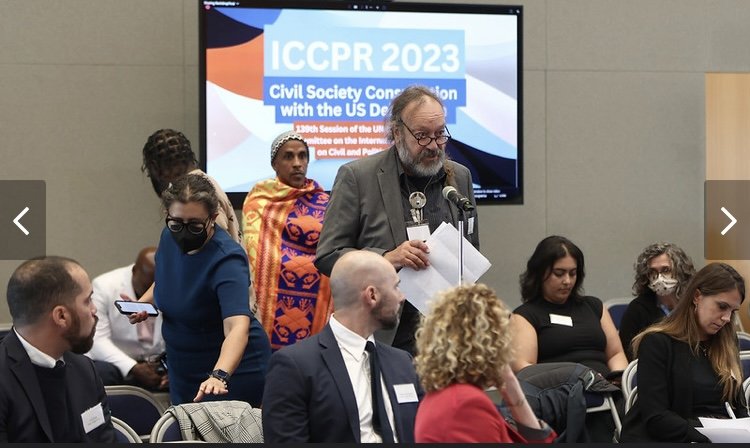
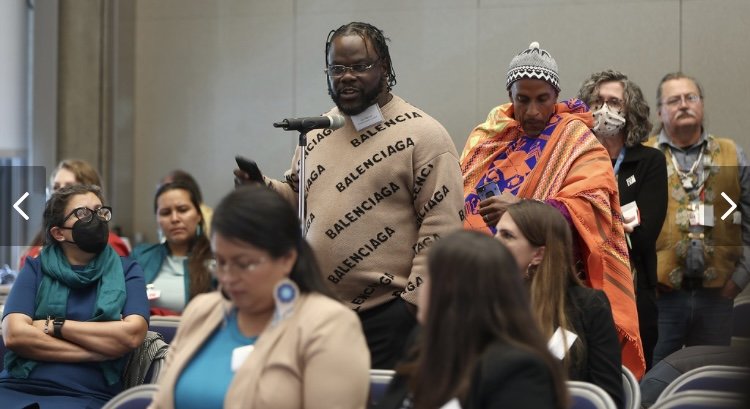
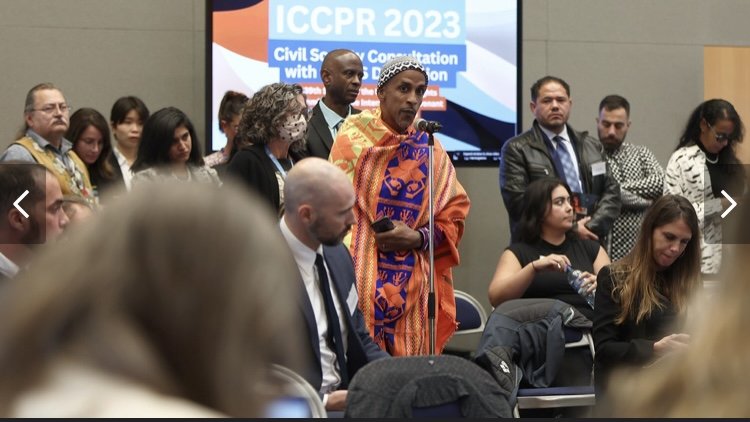
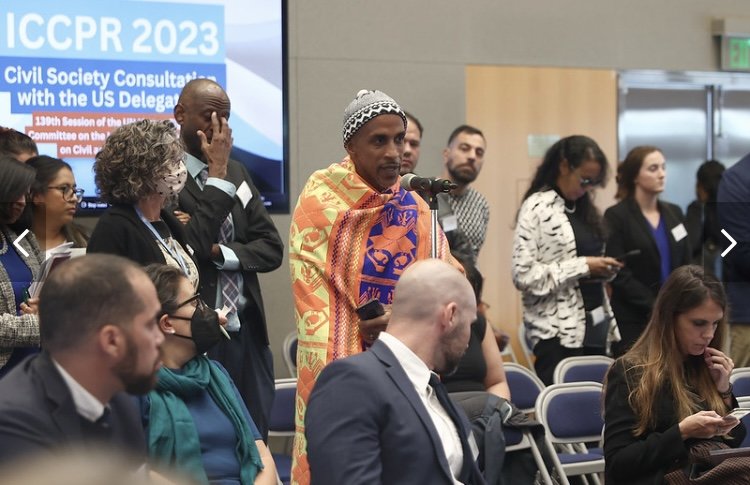
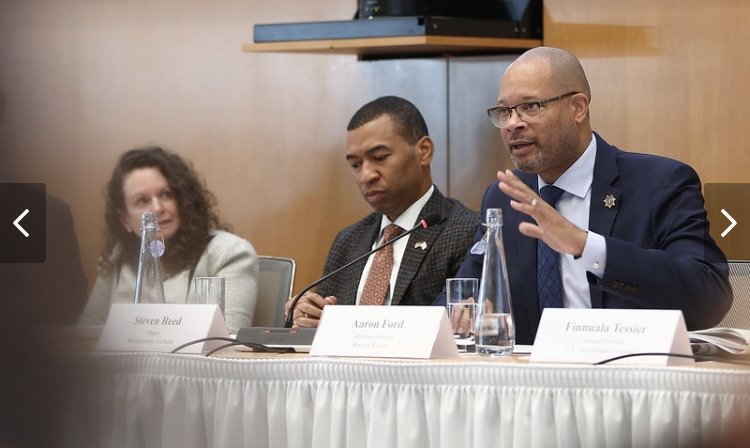
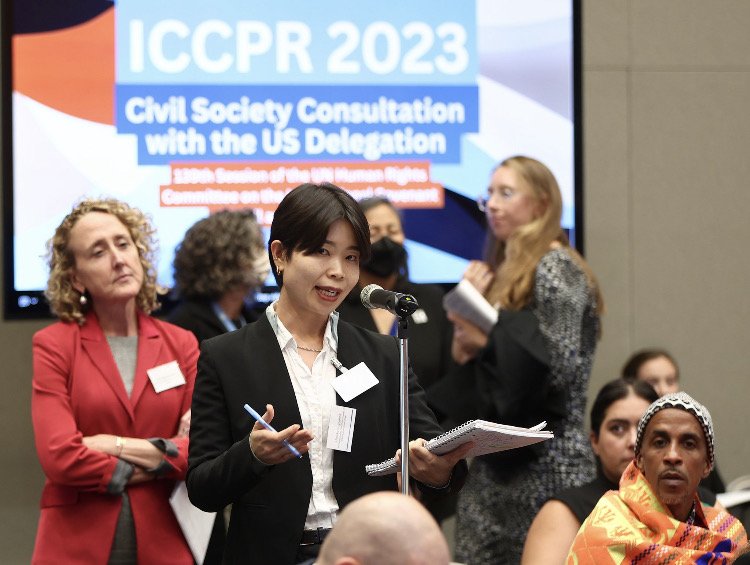
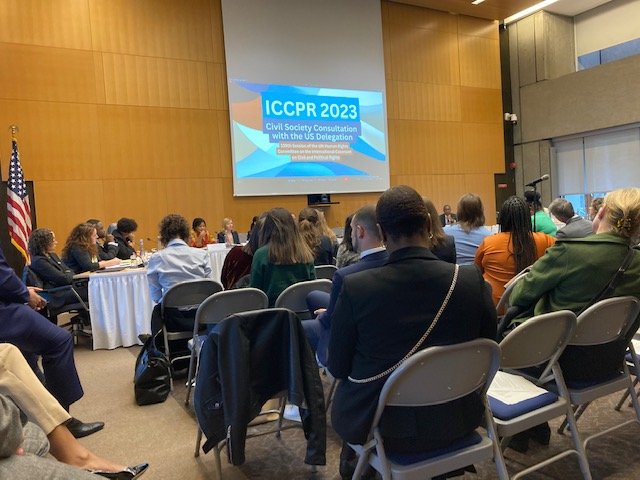
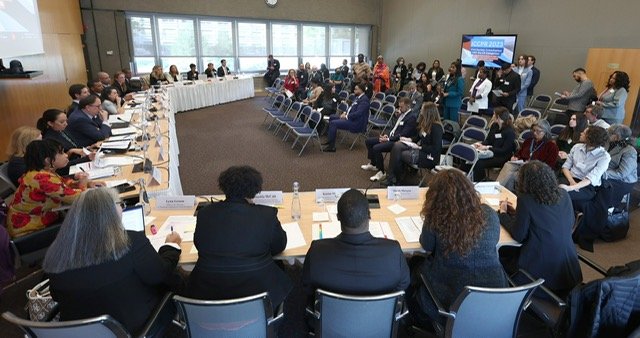
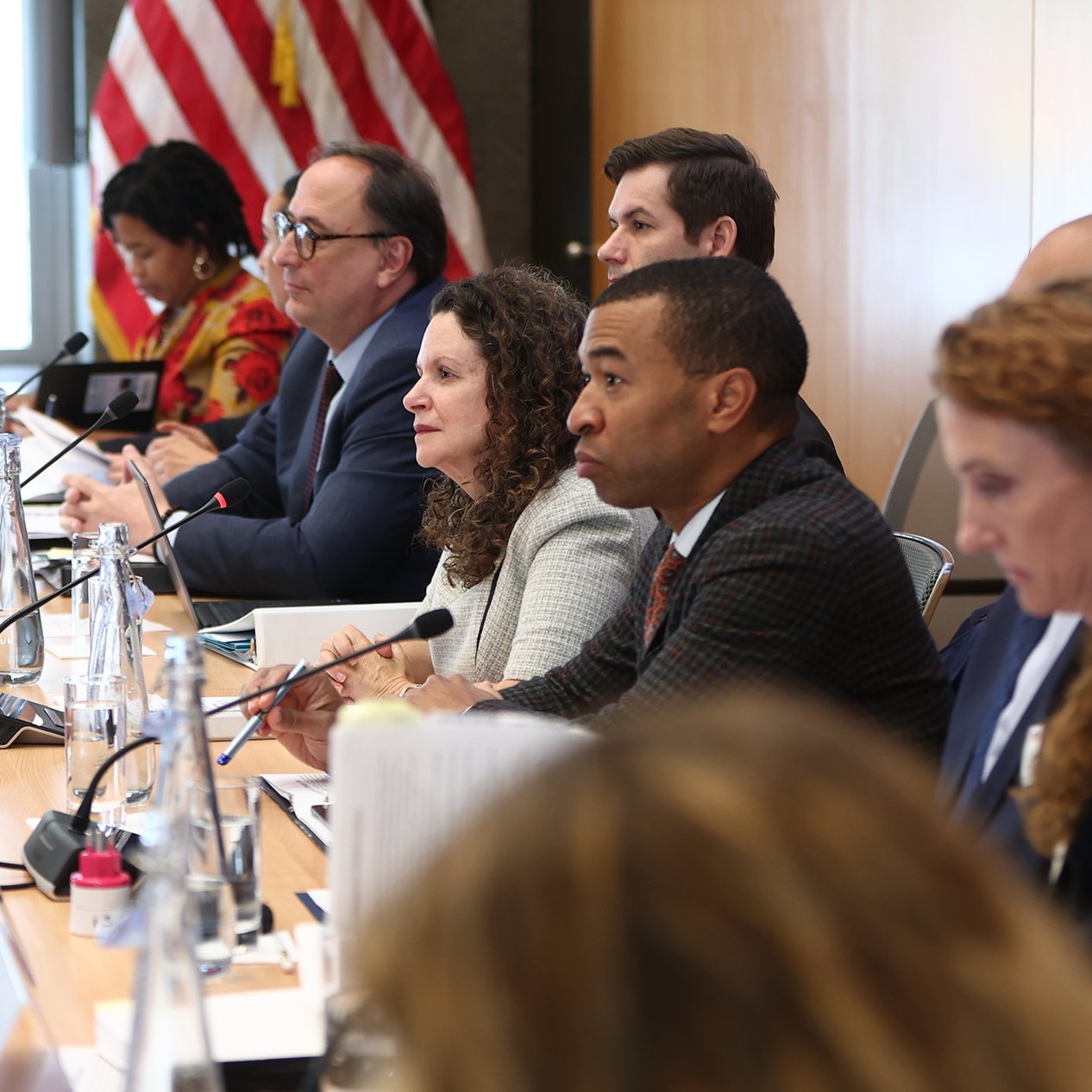

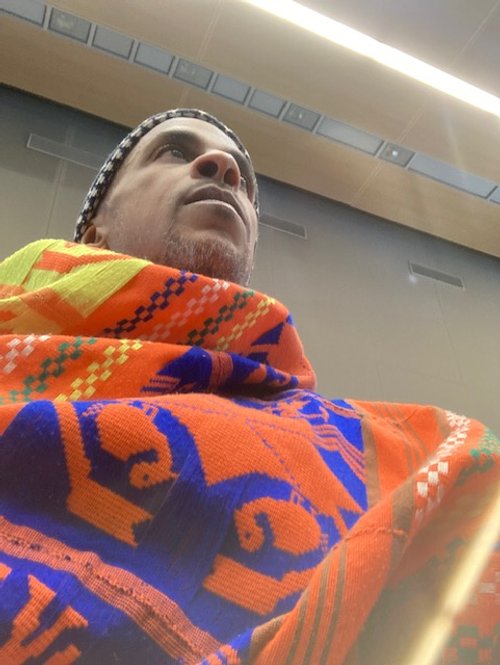
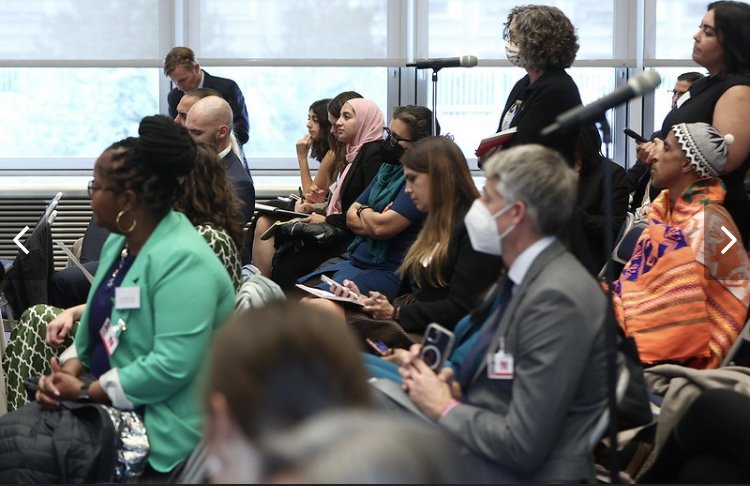
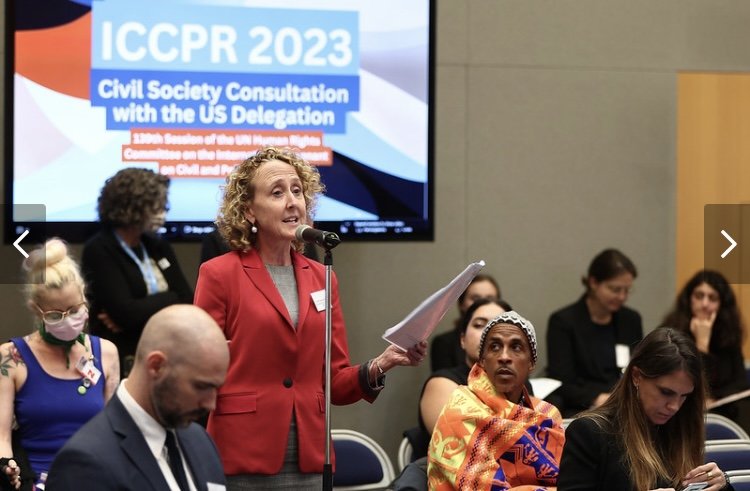
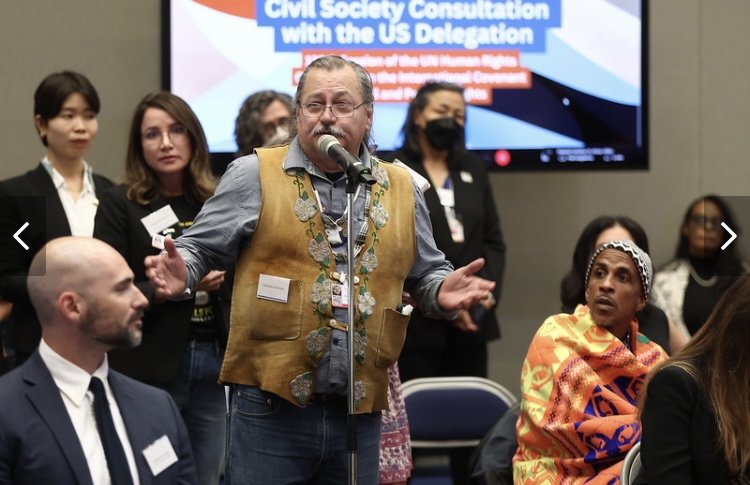
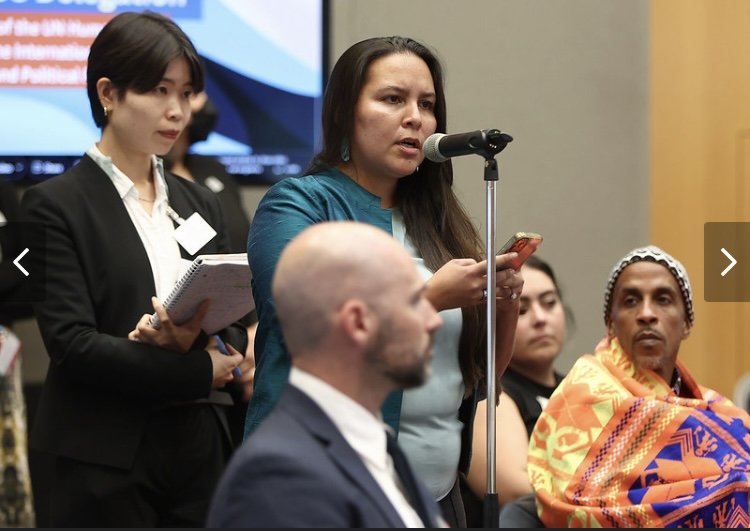
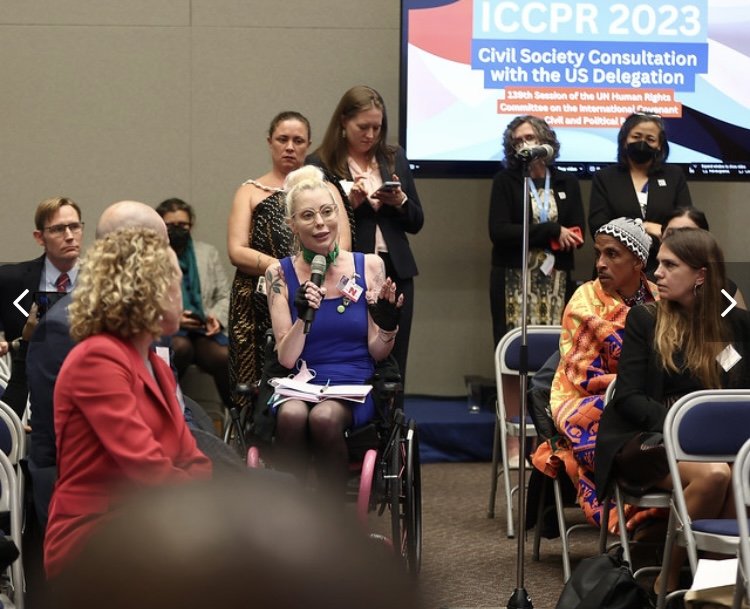
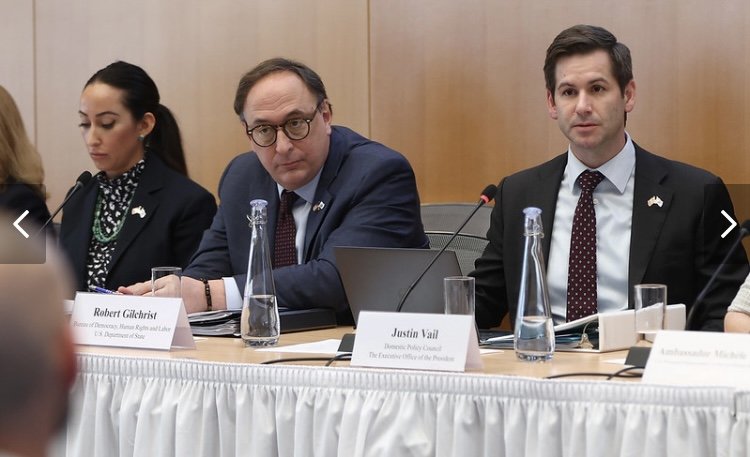
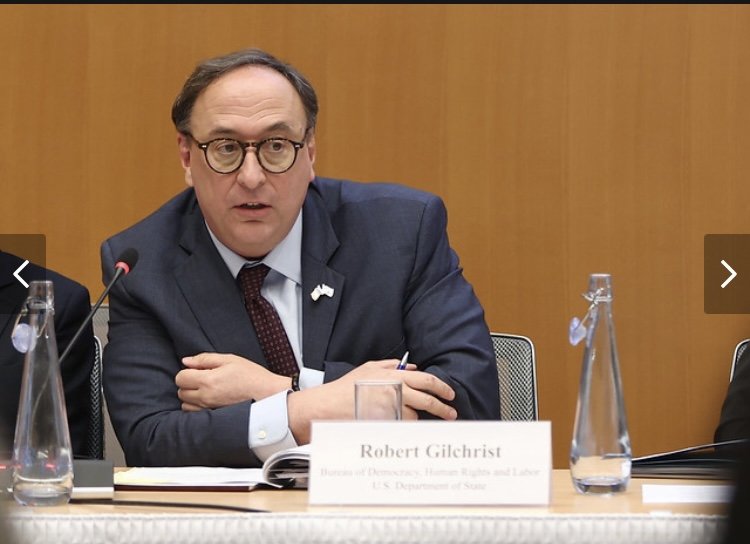
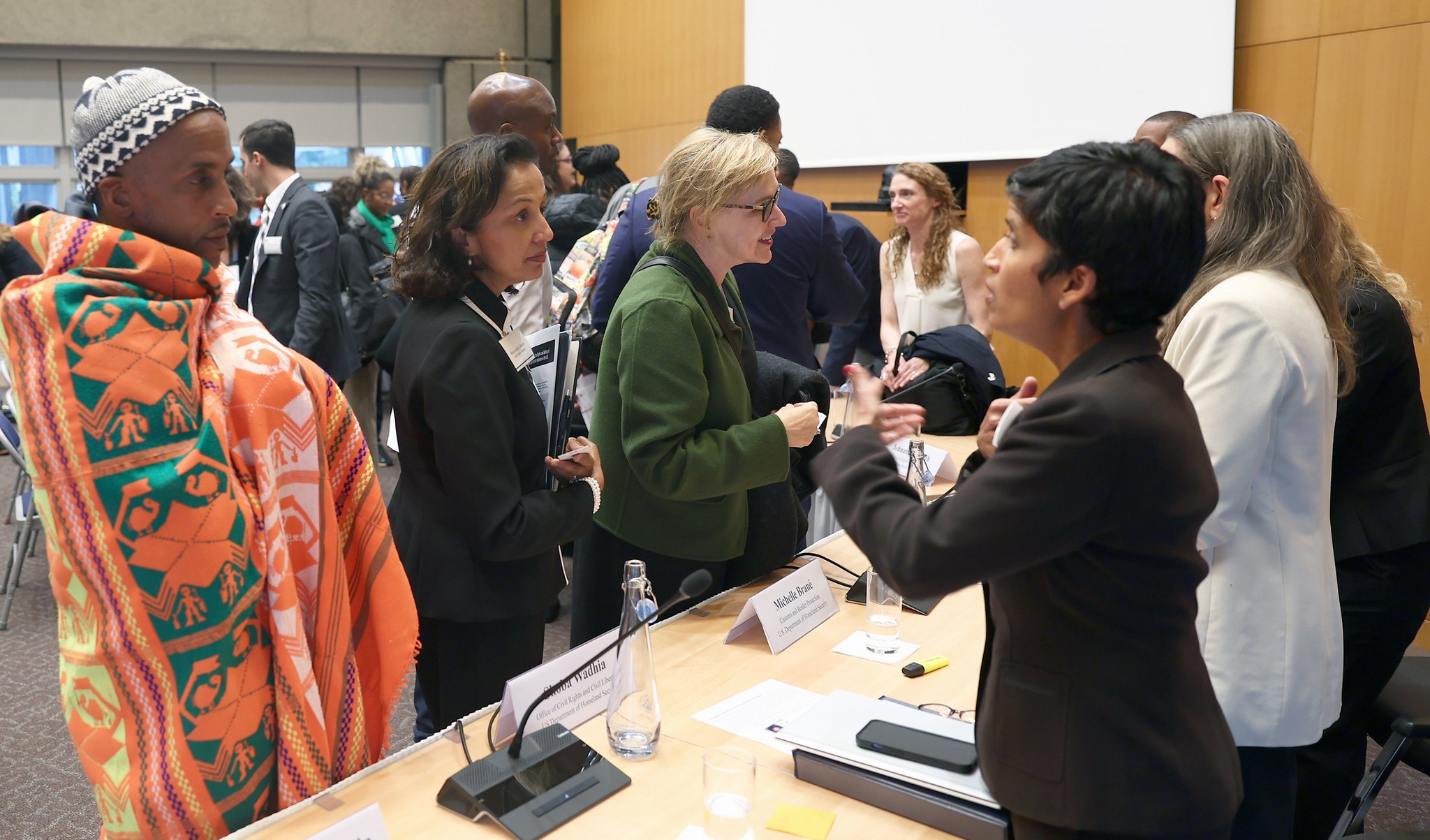
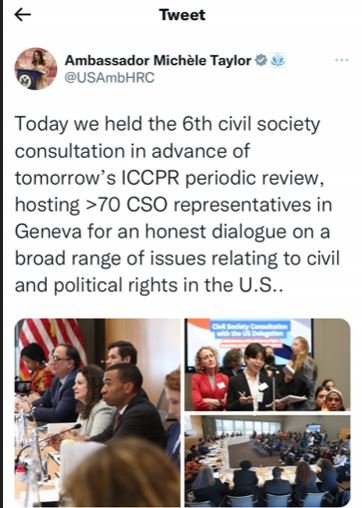
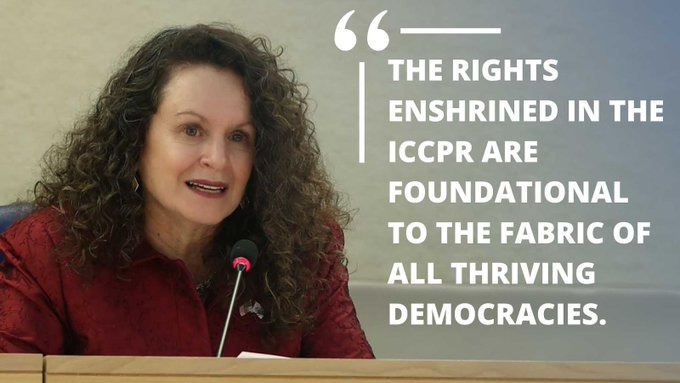
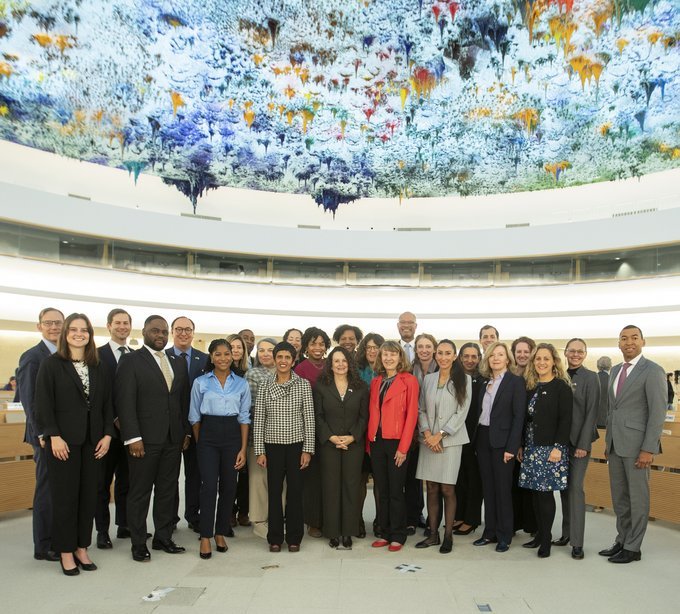
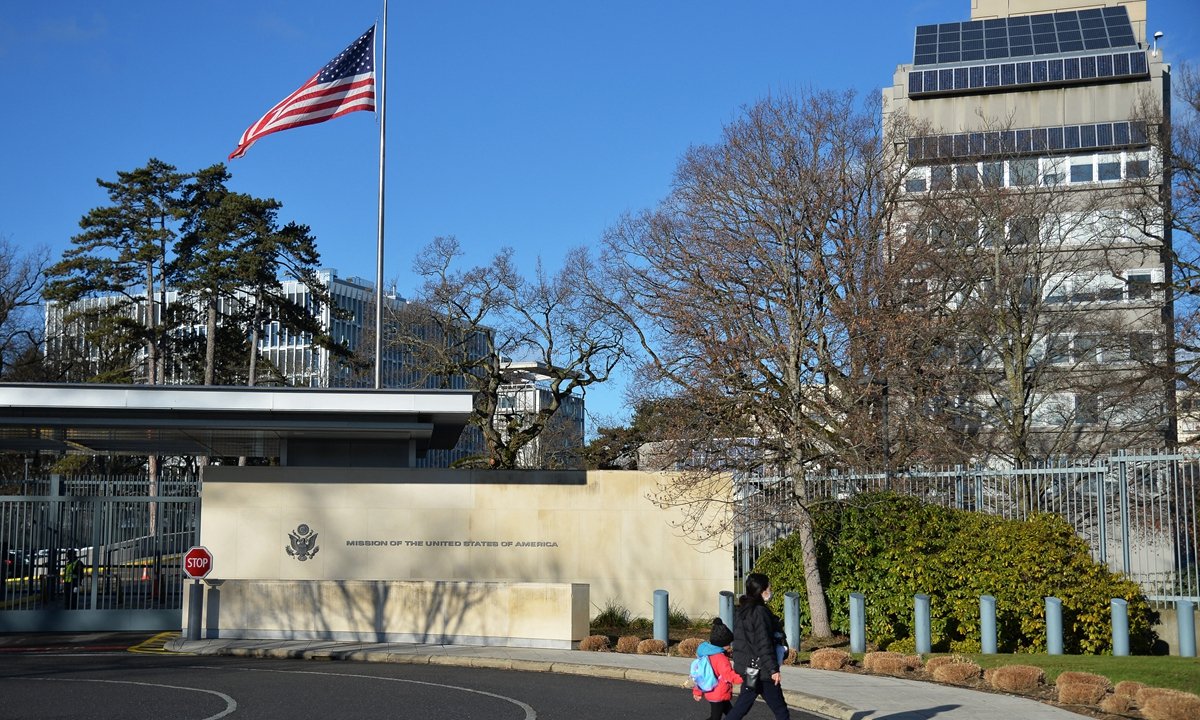
According to Mr. Baleka, “It was the first time that Balanta people were acknowledged by the United States government. And though I didn’t expect much by way of their on-the-record responses, I was encouraged by the private discussions I had during the reception with Shoba Sivasprasad Wadhia, Ambassador Taylor, Robert Glichrist, and the President of the National Bar Association, Dominique D. Calhoun, all of whom were unaware of the growing Lineage Restoration Movement and gave helpful advice on how to proceed.”





ICCPR 2023 Delegation Biographies
Delegation Representatives
Michele Taylor, Ambassador
Ambassador Michèle Taylor was sworn in as U.S. Permanent Representative to the United Nations Human Rights Council on February 22, 2022. Ambassador Taylor is a lifelong human rights activist and advocate with a determined commitment to service. As a daughter and granddaughter of Holocaust survivors, Ambassador Taylor brings to the Human Rights Council a profound appreciation for the crucial role the Council can and must play to promote universal human rights and protect human rights defenders. Ambassador Taylor is an advocate of women and girls in all their diversity, having long championed access to STEM careers, action to end violence against women, and equality for LGBTQI+ persons.
Bathsheba N. Crocker, U.S. Permanent Representative to the UN
Bathsheba “Sheba” Nell Crocker was confirmed by the Senate on December 18, 2021 and presented her credentials on January 18, 2022 as the U.S. Permanent Representative to the United Nations and Other International Organizations in Geneva, with the rank of Ambassador. Ambassador Crocker most recently served as a Senior Advisor at the U.S. Department of State.
U.S. Government Advisors
Michelle Brane, Executive Director, Family Reunification Task Force, DHS
Michelle Brané is the Executive Director of the Family Reunification Task Force, and a Senior Counselor to the Secretary of Homeland Security, the chair of the Task Force. As executive director, she oversees the inter-agency task force's day-to-day operations as it seeks to find and reunite the children and parents. Ms. Brané has more than 25 years of experience working on immigration and human rights issues at the Department of Justice Board of Immigration Appeals, Lutheran Immigration and Refugee Service and the Organization for Security and Co-operation in Europe in Bosnia. She has extensive experience in program management and advocacy.
Shoba Sivaprasad Wadhia, Officer for Civil Rights and Civil Liberties, DHS
Shoba Sivaprasad Wadhia is the Officer for Civil Rights and Civil Liberties at the Department of Homeland Security. The Office for Civil Rights and Civil Liberties (CRCL) supports the Department's mission to secure the nation while preserving individual liberty, fairness, and equality under the law. She leads CRCL to integrate civil rights and civil liberties into all Department activities by: Promoting respect for civil rights and civil liberties in policy creation and implementation; Communicating with individuals and communities whose civil rights and civil liberties may be affected by Department activities; Investigating civil rights and civil liberties complaints filed by the public regarding Department policies or activities, or actions taken by Department personnel; and Leading the Department's equal employment opportunity programs and promoting workforce diversity and merit system principles. Prior to joining the Biden-Harris Administration, Wadhia spent over two decades working as in the field of immigration in private practice, non-profit, and higher education. Most recently, she served as the Associate Dean for Diversity, Equity, and Inclusion; Samuel Weiss Faculty Scholar; and Clinical Professor of Law at Penn State Law in University Park.
Royce Bernstein Murray, Senior Counselor to the Secretary of Homeland Security, DHS
Royce Bernstein Murray is a Senior Counselor to the Secretary for Homeland Security. In her current role, she works to ensure that the U.S. immigration system protects the rights of refugees and other vulnerable noncitizens while maintaining the security of U.S. borders and the enforcement of immigration laws. Over the past 25 years, she has worked on migration and human rights issues for the U.S. government, nongovernmental organizations, academia, and the World Bank.
Deborah Plunkett, Associate General Counsel, DOD
Deborah Plunkett is Associate General Counsel with the International Affairs division at the U.S. Department of Defense. In her role, she counsels regarding compliance with applicable law, including international law. This includes supporting robust U.S. engagement in processes like the ICCPR review.
Ann Marie Bledsoe Downes, Principal Deputy Solicitor for Indian Affairs, DOI
Ann Marie Bledsoe Downes is the Principal Deputy Solicitor at the Department of Interior. She oversees the team of over 400 attorneys who provide legal counsel and advice to the Department of the Interior. In that role she is led by a U.S. Department that for the first time is led by an Indigenous Secretary, Deb Haaland, from the Pueblo of Laguna. The Department provides services to 574 federally recognized tribes with a service population of over 2.5 million American Indian and Alaska Natives and places emphasis on the policies of tribal self-governance and self-determination.
Heidi Todacheene, Senior Advisor to the Secretary, DOI
Heidi Todacheene serves as Senior Advisor to the Secretary at the U.S. Department of the Interior, and as the Executive Director of the Interior’s first-ever Secretary’s Tribal Advisory Committee (STAC). In her role, she oversees the Administration’s Indigenous and International priorities at the agency and strengthens the United States’ federal trust relationship with the 574 federally recognized American Indian and Alaska Native Tribes and their leadership.
Johnathan Smith, Deputy Assistant Attorney General, DOJ
Johnathan Smith is a Deputy Assistant Attorney General in the Civil Rights Division at the U.S. Department of Justice. The Division enforces federal statutes that prohibit discrimination and works to uphold the civil and constitutional rights of all persons in the United States, particularly some of the most vulnerable members of our society. In his role, Johnathan helps oversee the Division’s investigatory, enforcement, and policy efforts.
Finnuala Tessier, Attorney Advisor, DOJ
Finnuala Tessier is an Attorney Advisor in the Office of Policy and Legislation in the Department of Justice Criminal Division. In her role, she coordinates the Division’s response on policy and regulatory issues, including processes like the ICCPR review. In addition, Ms. Tessier is a member of the Department’s Sentencing Policy Group, through which she works on many of the criminal justice and sentencing policy initiatives that are the subject of the ICCPR review.
Jennifer Goodyear, Labor Attache, DOL
[pending]
Robert Gilchrist, Principal Deputy Assistant Secretary Bureau of Democracy, Human Rights, and Labor, DOS
Robert S. Gilchrist is the Principal Deputy Assistant Secretary of State for Democracy Human Rights and Labor. He is a career member of the Senior Foreign Service, class of Minister-Counselor. His last position was United States Ambassador to the Republic of Lithuania 2020-2023. Prior to being ambassador, Mr. Gilchrist Director of the Department of States Operations Center, Deputy Chief of Mission of the United States Embassy in Sweden, Deputy Chief of Mission of the United States Embassy in Estonia, and the Director of Nordic and Baltic Affairs in the State Department’s Bureau of European and Eurasian Affairs. Among his earlier assignments, Mr. Gilchrist was Deputy Political Counselor at the United States Embassy in Iraq, Chief of the Political Section of the United States Embassy in Romania, and a Special Assistant in the Office of the Deputy Secretary of State.
Mary Catherine Malin, Deputy Legal Adviser, DOS
Mary Catherine Malin is a Deputy Legal Adviser at the Department of State. She has served in the Legal Adviser’s Office for over 37 years. As deputy she supervises a number of offices, including the office that handles legal issues pertaining to human rights and refugees. She previously served in the section of the Legal Adviser's office for United Nations Affairs.
Justin Vail, Special Assistant to the President for Democracy and Civic Participation, DPC
Justin Vail serves as Special Assistant to the President for Democracy and Civic Participation at the White House Domestic Policy Council, where he works to strengthen American democracy.
Catherine Elizabeth Lhamon, Assistant Secretary for Civil Rights, Education
Catherine E. Lhamon is the Assistant Secretary for Civil Rights at the U.S. Department of Education. In her role, she works to ensure equal access to education and to promote educational excellence through vigorous enforcement of civil rights in US schools.
Karim David Marshall, Senior Advisor, EPA
Karim D. Marshall is the Senior Advisor for the Office of Environmental Justice and External Civil Rights (OEJECR) at the Environmental Protection Agency. In this role, he works to advance OEJECR’s mission to coordinate implementation of EJ priorities across the agency’s national programs, regions, the Administrator’s Office, and across partnerships with other federal agencies and coregulators in state, tribal, and local government, industry, and communities.
Jessica Swafford Marcella, Deputy Assistant Secretary, HHS
Jessica Swafford Marcella was appointed Deputy Assistant Secretary for Population Affairs and Director of the Office of Adolescent Health at the U.S. Department of Health and Human Services (HHS) on May 10, 2021. In this capacity, Ms. Marcella oversees the nation’s family planning program, advises the Department on a number of public health priorities, including reproductive rights, as well as leads efforts across HHS related to adolescent health, including administration of the evidence-based teen pregnancy prevention program.
Demetria McCain, Principal Deputy Assistant Secretary, HUD
Demetria McCain serves as the Principal Deputy Assistant Secretary for Fair Housing and Equal Opportunity (FHEO) at the U.S. Department of Housing and Urban Development (HUD). At FHEO, McCain assists HUD’s efforts to eliminate housing discrimination, promote economic opportunity, and achieve diverse, inclusive communities.
Lynn Grosso, Deputy Assistant Secretary for Enforcement, HUD
Lynn Grosso is the Deputy Assistant Secretary for Enforcement in the Office of Fair Housing and Equal Opportunity at the US Department of Housing and Urban Development. Under Lynn’s leadership, HUD enforces broad civil rights authority to provide inclusive, accessible housing, free from discrimination, across the nation.
Joshua Black, Special Assistant to the President and Senior Director for Multilateral Affairs, NSC
Josh Black is Special Assistant to the President and Senior Director for Multilateral Affairs on the National Security Council (NSC) staff at the White House. He leads the NSC team responsible for United Nations and international organization affairs, refugee/migration policy, and global criminal justice.
Non-Federal Government Advisors
Aaron Ford, Attorney General of the State of Nevada
Aaron D. Ford is the Attorney General of the State of Nevada. In his position, Attorney General Ford has led his state’s legal defenses against efforts to overturn free and fair elections; held legally accountable those who had a hand in causing the opioid crisis in Nevada; and worked diligently for criminal justice reform.
Steven Reed, Mayor of Montgomery, Alabama
As the first Black Mayor of Montgomery, Alabama in the city’s 200-plus-year history, Mayor Reed is transforming the Birthplace of the Civil Rights Movement into a leader in the New South. Despite challenges stemming from the global COVID-19 pandemic, state legislative overreach and old powers gasping for relevancy, Mayor Reed’s bold, progressive vision continues shifting the narrative and changing the trajectory for Montgomery – creating a community where everyone has a chance to live, learn and earn.



